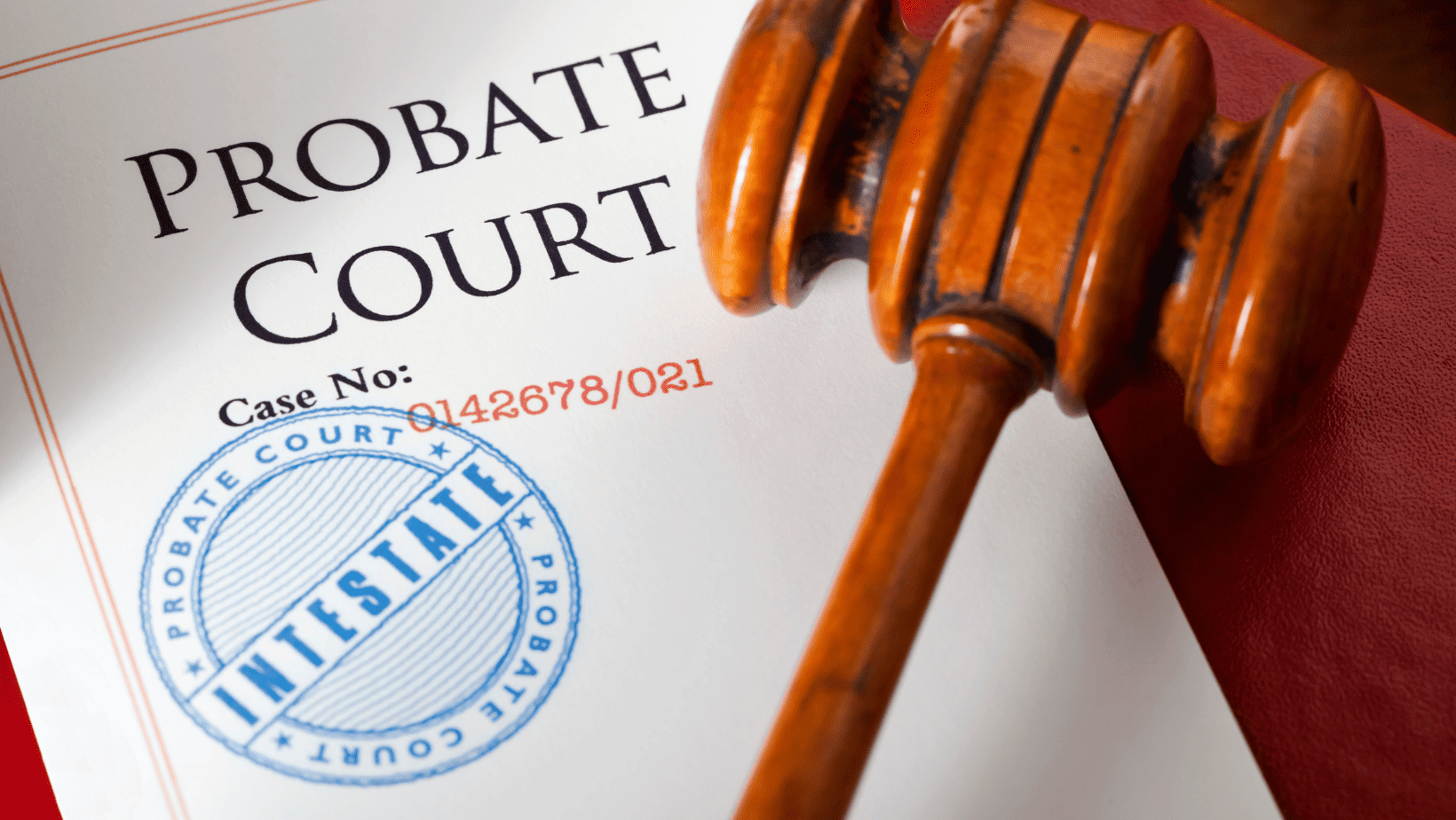I hope you enjoy reading this blog post.
If you want to represent yourself in family law, probate or estate planning court in Arkansas, check out one of our dedicated guides.

Info in this Blog
Navigating the probate process when losing a loved one is a complex task, yet understanding how to do so in Arkansas can save effort and distress. This guide walks through all of the crucial steps for completing this procedure – from comprehending what exactly requires involvement from a probate court to illustrating why estate planning matters greatly during such times.
Short Summary
Understand the probate process in Arkansas, including the roles of the Probate Court and filing requirements.
Manage assets and debts to ensure proper distribution per will or state laws.
Navigate challenges with help from a probate attorney for legal guidance & estate planning assistance.
Understanding the Probate Process in Arkansas
The probate process is the system by which a deceased person’s assets are distributed as mandated by state law and overseen by the local court. In Arkansas, this entails regulating these matters carried out through their respective courts to guarantee that all relevant estate proceedings remain under applicable probate laws.
The Role of Probate Court
The role of the probate court is critical in assuring that wills are correctly authenticated and assets distributed accordingly through its management of probate proceedings. The probate administration executor, whom a will appoints, must abide by the decedent’s desires as laid out in their will or revocable living trust for these procedures to be followed successfully.
Should an individual pass away without having any valid document, such as a Will or Revocable Living Trust put into place ahead of time, it becomes increasingly important for this same court to decide how the estate should be divided among heirs. It decides inheritance laws when no prior agreement has been made before the owner’s death so that their belongings can still be given suitable distribution after they’re gone.
Probate Laws and Regulations
In Arkansas, probate laws guide how to divide assets in the event of death. An executor or personal representative is assigned if there’s a will. Otherwise, an impartial administrator takes over financial assets when someone passes away without one. In some cases, it is possible for sole ownership property owners to skirt around this process through POD (payable on death) and TOD (transfer on death) designations appended to titles or deeds as well. Under these regulations, blood relatives and adopted children receive equal portions, while stepchildren do not have any right of inheritance.
Starting the Probate Process

The probate process begins by filing the will and death certificate with a court that is specialized in dealing with matters of probate. At this stage, an executor or personal representative must oversee the estate’s management. Depending on various factors such as the paperwork involved, this initial step can last for up to 4 weeks before Proceedings take place.
Filing the Will and Death Certificate
The probate process begins with the filing of the will and death certificate at a probate court. This must be done within the time allowed under Arkansas law. The judge overseeing this then evaluates if it is a valid will, allowing those stated in the will to present their side regarding it during proceedings should any contestations arise over its contents. Ultimately they decide how best to proceed depending on what happens during these hearings.
Appointing an Executor or Personal Representative
The probate court is responsible for designating a personal representative to manage the estate of the deceased, which involves identifying assets, paying off debts and any estate taxes due on it, as well as distributing its contents by either their will or Arkansas laws. These representatives should abide by all relevant probate laws and regulations when fulfilling their duties. At the same time, they can be expected to receive compensation for this service equal to 5% value of the entire estate’s worth. They must ensure that all items are distributed correctly according to whatever terms may have been established prior.
Managing Assets and Debts
The probate process involves managing the estate of a deceased person, which necessitates taking stock of their possessions and figuring out what they are worth. It is crucial that all remaining debts be taken care of before dividing up any assets for distribution amongst beneficiaries. Probate law requires seeing through these obligations so no money owed by the departed individual remains unpaid upon completion. Failing to do this means their legacy won’t be fully accounted for within the context of their estate management procedures followed after passing away.
Inventorying Assets
As part of the probate process, it is essential to inventory all assets in the estate account order to gain an understanding of their value and that nothing was left unaccounted for before being distributed. This includes real estate, vehicles, investments like bank accounts or cash holdings, as well as tangible items such as personal property and intellectual rights even down to pets. The method prescribed by Arkansas requires assembling a list then categorizing each asset followed up with appraising them before submitting this record alongside other related documents during the course of probating the estate.
Assessing and Paying Debts
The personal representative has the responsibility of notifying the court about any known outstanding debts within an appropriate timeframe. Once all those liabilities are determined, they must be paid off by tapping into funds from deceased person’s estate or assets, so that beneficiaries can gain access to them afterward.
In cases where cash flow is limited during probate proceedings, it may be necessary for property and possessions owned by the decedent’s estate to be sold in order to settle these obligations owed by creditors – who usually have a year at most after death when claiming their money due on behalf of said person’s estate.

Free Checklist to Make Sure you Start Your Case Correctly!
Distributing the Estate
The executor of the estate must oversee a legal procedure referred to as probate in order for remaining assets to be distributed among beneficiaries. The process requires them firstly to take an inventory and assess any value from it, before settling debts that need payment. With approval from the court, they can proceed with distributing the previously noted assets accordingly.
Following the Will’s Instructions
In Arkansas, it is critical that a deceased individual’s wishes are upheld throughout the asset distribution process. To challenge the authenticity of a will, an individual must file legal paperwork with the court and enumerate their reasons for objecting in writing. The authorities presiding over this matter then appoint an executor who has all the assets and takes charge of all outstanding taxes or debts related to said estate before splitting up any remaining resources according to what was stated within the will itself.
Intestate Succession
Without a will, the estate of the deceased is distributed in accordance with Arkansas’s rules for intestate succession. This Entails spouses, offspring and other kin getting precedence. Retirement accounts such as 401(k) plans, individual retirement accounts (IRAs), pensions that have nominated beneficiaries and insurance policies are outside of probate proceedings. They do not go through probate court procedures when someone passes away.
In cases where there aren’t any legal heirs to take possession of assets, those possessions may be given up to the state using a process termed escheatment. It is important to make a will since dying without one could often bring about more lengthy or expensive management over an estate during probate processes.
Navigating Challenges and Disputes
The probate process is often fraught with complexity and emotional turmoil. To help streamline the proceedings, it’s important to be aware of contesting wills and resolution techniques related to such issues.
In certain situations, a dispute may arise due to confusing details or other factors. Learning how best to address them could be instrumental in ensuring that all parties are satisfied with their respective outcomes during the probate process.
Contested Wills
Contested wills can result when someone believes the deceased was manipulated into executing a will or that it is not valid. In Arkansas, an objection to a will must be submitted in writing to the court through filing of a petition. Subsequently, it is up to the judge making their decision on whether this particular document stands legal ground or not.
It should be remembered that contesting something like this could take months and would incur substantial costs for all involved parties, which means individuals need consider carefully before taking such actions against any given testamentary deed set out by the decedent.
Resolving Disputes
When undergoing the probate process, disagreements can be worked out in a number of ways such as talking it over or taking legal action. When going to court is necessary, then financial costs should also be taken into account. Mediation involves both sides meeting with an impartial individual who helps them reach agreements that are satisfactory for everyone involved and if this fails litigation might ensue which requires each side to present their argument before being judged by either judge or jury.
A probate attorney is there to offer legal advice and assistance through the entirety of the estate’s probate process as well as provide assistance in devising an estate plan that can help prevent having to go through probating. They are equipped with knowledge on how one should appropriately divide and distribute remaining assets, resolve conflicts, and guarantee all rules and regulations are followed during this complex ordeal. They guide executors or those who have been assigned personal responsibility for handling a deceased person’s will throughout their experience dealing with any parts of the terms stated within it while also being capable enough to assist someone when creating an effective strategy so they don’t need to rely upon going through probating at all.
Legal Guidance and Support
Probate attorneys are instrumental in assisting executors and personal representatives to abide by the legal regulations when it comes to probating a will. In Arkansas, testators can petition for their wills to be validated during lifetime through the Ante-Mortem Probate Act, as per applicable laws pertaining to probates. Besides offering guidance on complying with such laws, an attorney to initiate probate also helps distribute assets accurately according to the late individual’s wishes while informing beneficiaries of their roles under this arrangement too.
Estate Planning and Avoiding Probate
Estate planning with the guidance of a probate lawyer can facilitate individuals in putting together a thorough plan for their assets, eliminating or reducing chances of going through the potentially lengthy and expensive legal process known as probate. A will is an important element to estate planning, but must be validated by means of probate, which makes it prone to contesting. On contrary, trusts do not need validation via this legal procedure thus becoming less likely candidates for disputes when distributing possessions from estates.
Creating an appropriate strategy through working closely with experienced attorneys specialized on Estate Planning could guarantee that your resources are distributed according to what you desire while circumventing unnecessary encounters with courtrooms trying to carry out Procedures involved in passing inheritance rights down to chosen heirs.
Conclusion
To achieve a smooth probate process in Arkansas, seeking the help of an experienced probate attorney is essential and estate planning can go a long way to ensure that one’s assets are distributed as desired. All involved should keep this guide’s steps in mind so they may understand how best to maneuver through these complexities successfully.
Frequently Asked Questions
Which is the correct order of payment from an estate?
In an estate, the usual order of payments typically follows taxes and legal fees first, then funeral costs, followed by creditor claims. In certain situations though, support obligations may take precedence over other demands for payment. All this is done to ensure that estates are settled with fairness and accuracy while honoring any outstanding debts or expenses associated with it.
What goes through probate in Arkansas?
In Arkansas, the process of probate includes authenticating a final will (if any), settling debts or taxes owed and distributing whatever assets are left over to beneficiaries.
How long does simple probate take in Arkansas?
In Arkansas, the average probate process typically takes six to nine months to settle.
Complications may arise that can prolong this period.
Is probate mandatory in Arkansas?
In Arkansas, if the individual who passed away possessed property or had minors as dependents and also bequeathed valuable items to heirs, probate is required by law.
What are the disadvantages of probate?
The process of probate has many drawbacks, including expensive costs and lengthy delays that can be a source of disagreement among family members. There is an element of lack of privacy since it becomes public record. It should not be taken lightly when embarking on the journey to complete a probate proceeding as these factors all need careful consideration beforehand
Do you want to represent yourself in court?

About Brandon
A licensed attorney with over 10 years of experience – I’ve noticed a lack of support for people who want to represent themselves in court.
So, I’ve created video guides that will help you gain back control of some of the least predictable situations you could experience in your lifetime.
- Intro to Probate Cases
- Requirements to File Probate
- Drafting a Petition for Probate
- Court Required Forms
- How, Where, and What to File
- Drafting an Acceptance
- Drafting Letters Testamentary
- How to Serve or Get a Waiver
- Drafting a Waiver
- Draft a Notice for Publication
- Gathering Assets
- Drafting an Inventory
- Drafting an Accounting
- Drafting for Distribution
- Closing the Estate